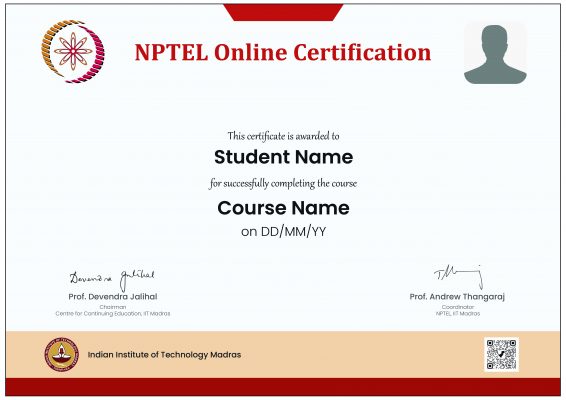Description
The course titled “Climate-resilient, energy secure and heathy built environments (CREST)” is being realized through the Going Global Partnerships Collaborative Grant offered by the British Council. CREST responds to an urgent need to train the next generation of architects and engineers in meeting the triple-challenge of a climate resilient, energy secure and healthy built environment. These designers will oversee a doubling of current global built floor space in the Global South alone during their professional lifetimes; locking in carbon, energy and indoor-health footprints for up to 6 decades, thus affecting millions of lives. We are leveraging joint UK-India expertise via Newton and UKIERI research funding to address these challenges across three scales of design: novel building materials, climate extreme resilient building design and sustainable neighbourhoods. CREST is being jointly developed by 7 institutes from India (IIT Roorkee, IIT Madras, MANIT Bhopal, SPA Delhi, SPA Bhopal, SPA Vijayawada and School of Architecture and Planning – SAP, Anna University, Chennai) and the University of Bath from UK. The following are the details of faculty members developing the course.
INTENDED AUDIENCE
This flexible course module is designed to enhance UG/PG courses of Civil Engineering, Architecture and Planning and Mechanical Engineering. It will impart practical experience and provide capacity building to practicing professionals of design, construction and engineering discipline.
INDUSTRY SUPPORT
As a part of the course development we have partnered with the National Institute of Urban Affairs (NIUA) who have shown their willingness to use this course to train administrative officials and engineers associated with 30 smart cities.
ABOUT THE INSTRUCTORS
Prof. Sukumar Natarajan is Professor of Environmental Design at the Department of Architecture and Civil Engineering, University of Bath. He is also the Director of the multi-departmental Centre for Regenerative design and Engineering for a NEt positive World (RENEW) with research interests that include: building energy modeling, energy behavior, smart meter interface design, impacts of climate change on buildings, occupant thermal comfort <https://researchportal.bath.ac.uk/en/persons/sukumar-natarajan>
Dr. Richard Ball is a Reader in the Department of Architecture and Civil Engineering, University of Bath. His research interests are focused on microstructure/macrostructure property relationships of materials, setting reactions, sensors, degradation processes, water transport mechanisms, polymeric and ceramic materials for 3D printing, conservation materials, photocatalytic coatings and materials for improving the indoor air quality of buildings. https://researchportal.bath.ac.uk/en/persons/richard-ball
Dr. E. Rajasekar is an Associate Professor in the Department of Architecture and Planning, Indian Institute of Technology Roorkee. He works in the field of ‘Thermal comfort and human behaviour, Energy demand management in buildings, Building Physics, Hygro-thermal performance of building envelope, Building Information Modeling and Management, Building Automation and Control, Architectural Acoustics, Environmental Noise Modeling and Control’. https://ar.iitr.ac.in/~AR/Rajasekar_Elangovan
Dr. Shiva Nagendra Saragur Madanayak is a Professor in the Department of Civil engineering, Indian Institute of Technology Madras. His research interests are focused on Air pollution modelling- deterministic, stochastic and artificial neural network approaches, Policy framework for urban air quality management, Neuro-fuzzy applications in environmental system modelling, Measurement and multivariate analysis of air quality data, Emission inventory and source-receptor modelling, Indoor air pollution monitoring and modelling, Industrial air pollution control. https://iitm.irins.org/profile/50487
Dr. Shweta Manchanda is an Associate Professor in the Department of Architecture, School of Planning and Architecture, New Delhi. Her expertise lies in the field of Environmental Design and Architecture. <https://spa.irins.org/profile/97340>
Dr. Faiz Ahmed Chundeli is an Assistant Professor in the Department of Architecture, SPA Vijaywada. His area of expertise lies in Visulaization, Thermal comfort, Built-environment Modeling, Geo-Spatial Analysis, Urban Climate and Urban Energy Modeling.
https://www.spav.ac.in/pdf/Dr.FaizAhmed-CV.pdf
Dr. Rajnish Kurchania is a Professor in the Department of Physics, Maulana Azad national Institute of Technology (MANIT) Bhopal. His expertise lies in the field of Functional Materials and solar Photovoltaics. <http://www.manit.ac.in/dr-rajnish-kurchania-0>
Dr. Alka Bharat is a Professor in the Department of Architecture and Planning, Maulana Azad national Institute of Technology (MANIT) Bhopal. Her expertise lies in the field of Spatial planning, Architecture, Economics, Natural Resources, Environment & Human Rights. http://www.manit.ac.in/content/dralka-bharat
Dr. Krishna Kumar Dhote is a Professor in the Department of Architecture and Planning, Maulana Azad national Institute of Technology (MANIT) Bhopal. Her expertise lies in the field of Urban Renewal and Redevelopment, Housing for poor, Social Impact Assessment and Sustainable Development.
http://www.manit.ac.in/content/dr-krishna-k-dhote-0
Dr. Anurag Bagade ia an Assistant Professor in the Department of Environmental Planning, School of Planning and Architecture Bhopal. His expertise lies in the field of Urban heat island, sustainable urban and environmental planning, land cover and land-use planning, urban form and, data science in planning.
https://www.researchgate.net/profile/Anurag-Bagade
Dr. Natraj Kranthi is an Associate Professor in the Department of Planning, School of Planning and Architecture Bhopal. His expertise lies in the field of Urban Land Tenure, Inclusive Planning, Urban morphology, Geospatial modeling and Architectural daylighting. https://www.spav.ac.in/pdf/Natraj-Kranthi-Profile-2018.pdf
Dr. Rama Umesh Pandey is an Associate Professor in the Department of Environmental Planning, School of Planning and Architecture Bhopal. Her expertise lies in the field of Climate Informed Settlement Planning; Mainstreaming Environmental Concerns both Global and Local Level in Spatial Planning; Socio-ecological and Climate Change Resilience; Interaction between Urban Heat Island and Urban pollution; and Livability of the Residential Built Environment. http://14.139.241.249/CV/RamaUPandey25012021.pdf
Dr. N. Sridharan is a Professor and Director at School of Planning and Architecture, Bhopal. His expertise lin the field of Urban governance and finance, Peri-Urban Development, Rurban Cluster Planning, Corridor Development and Urbanisation, Urban Land Markets, Poverty and Sustainability and Spatial Data Infrastructure, Economics, Urban and Regional Planning, Town and Country Planning, Financial Management. <https://spabhopal.irins.org/profile/90139>
Dr. Elango Manivannan is an Associate Professor in the School of Architecture and Planning, Anna University, Chennai. His expertise lies in the field of Analytic Hierarchy Process, AHP, Architectural Design, Architecture, Urban Design and Urban Ecology. <https://www.researchgate.net/profile/Manivannan-Elango>



Reviews
There are no reviews yet.